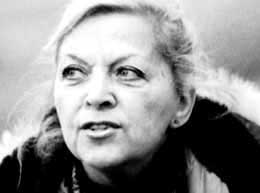
Sterling Memorial Library (SML) is the main library building of the Yale University Library system in New Haven, Connecticut, United States. Opened in 1931, the library was designed by James Gamble Rogers as the centerpiece of Yale's Gothic Revival campus. The library's tower has sixteen levels of bookstacks containing over 4 million volumes. Several special collections—including the university's Manuscripts & Archives—are also housed in the building. It connects via tunnel to the underground Bass Library, which holds an additional 150,000 volumes.
The Moving Image Archive is a collection of Scottish film and video recordings at the National Library of Scotland, held at Kelvin Hall in Glasgow, Scotland. There are over 46,000 items within the collection, and over 2,600 of these are publicly available online at the library's Moving Image Catalogue.
The UCLA Film & Television Archive is a visual arts organization focused on the preservation, study and appreciation of film and television, based at the University of California, Los Angeles (UCLA).

The Battle of the Century is a 1927 American silent short film starring comedy double act Laurel and Hardy, who appeared in 107 films between 1921 and 1951. The film entered the public domain in the United States in 2023.
Robert Beavers is an American experimental filmmaker. Born and raised in Massachusetts, he attended Deerfield Academy which he left before graduating to move to New York in 1965 to pursue filmmaking. He lived in New York until 1967 when he and his partner, Gregory Markopoulos, left the United States for Europe, where they continued to live and make films until Markopoulos's death in 1992.
The Melbourne Cinémathèque is a non-profit membership-based film society screening programs year-round, dedicated to presenting the history of world cinema on the big screen in carefully curated retrospectives. It screens at ACMI in Melbourne.

The Yale University Library is the library system of Yale University in New Haven, Connecticut. Originating in 1701 with the gift of several dozen books to a new “Collegiate School," the library's collection now contains approximately 14.9 million volumes housed in fifteen university buildings and is the third-largest academic library system in North America and the second-largest housed on a singular campus.

The Harvard Film Archive (HFA) is a film archive and cinema located in the Carpenter Center for the Visual Arts at Harvard University in Cambridge, Massachusetts. Dedicated to the collection, preservation and exhibition of film, the HFA houses a collection of over 25,000 films in addition to videos, photos, posters and other film ephemera from around the world and from almost every period in film history. The HFA cinematheque screens films weekly in its 188-seat theater. It also maintains a film conservation center near Central Square, Cambridge. Harvard Film Archive won the 2020 Webby Award for Cultural Institution in the category Web.

Suzan Pitt Kraning, known professionally as Suzan Pitt, was an American film director, animator, painter, and fashion designer best known for her surrealist animated shorts, including Asparagus (1979).
Blackhawk Films, from the 1950s through the early 1980s, marketed motion pictures on 16mm, 8mm and Super 8 film. Most were vintage one- or two-reel short subjects, usually comedies starring Laurel and Hardy, Our Gang, Charlie Chaplin, Buster Keaton, and other famous comedy series of the past. Blackhawk also offered newsreels, documentaries, and silent feature films. With the rise of the video market in the early 1980s, Blackhawk began producing video versions of many of their titles in 1981 and within a few years no longer manufactured film copies. The company was later purchased by Republic Pictures in 1985, and the film elements still later by archivist David Shepard.

Storm de Hirsch (1912–2000) was an American poet and filmmaker. She was a key figure in the New York avant-garde film scene of the 1960s, and one of the founding members of the Film-Makers' Cooperative. Although often overlooked by historians, in recent years she has been recognized as a pioneer of underground cinema.
Richard Roger Reeves is a Canadian animated filmmaker. He is known for his whimsical abstract animated films created using a drawn on film technique.
Jennifer West is an American artist. She is known for her digitized films that are made by hand manipulating film celluloid. She serves as faculty at the University of Southern California (USC) at the Roski School of Art and Design. She lives and works in Los Angeles.

The Cinematheque, founded in 1972, is a Canadian charity and non-profit film institute, media education centre, and film exhibitor based in Vancouver, British Columbia.
American artist Joseph Cornell (1903–1972) is justifiably best known for his boxes which constitute a singular contribution to the Surrealist canon and to the art of assemblage. However, he also pursued experimental film-making as an amateur beginning in the 1930s. Cornell was the principal pioneer of collage films in a purely artistic sense and, although the introduction of his films into the public forum was relatively late compared to when they were made, his work as a filmmaker has been widely influential.
Folkstreams is a non-profit organization that aims to collect and make available online documentary films about folk art and culture.
Leandro Katz is an Argentine-born writer, visual artist and filmmaker known primarily for his films and photographic installations. His works include long-term, multi-media projects that delve into Latin American history through a combination of scholarly research, anthropology, photography, moving images and printed texts.
The Indiana University Libraries Moving Image Archive (IULMIA) is a major repository for nontheatrical film, video, and related archival materials located in Bloomington, Indiana.
Ivan Gaal is an Australian filmmaker. He primarily makes documentary films. He has also worked as a professional photographer, and also gained recognition as an Olympic standard canoeist.
Cecile Starr was an American filmmaker, educator and author who taught and wrote about moving pictures.







